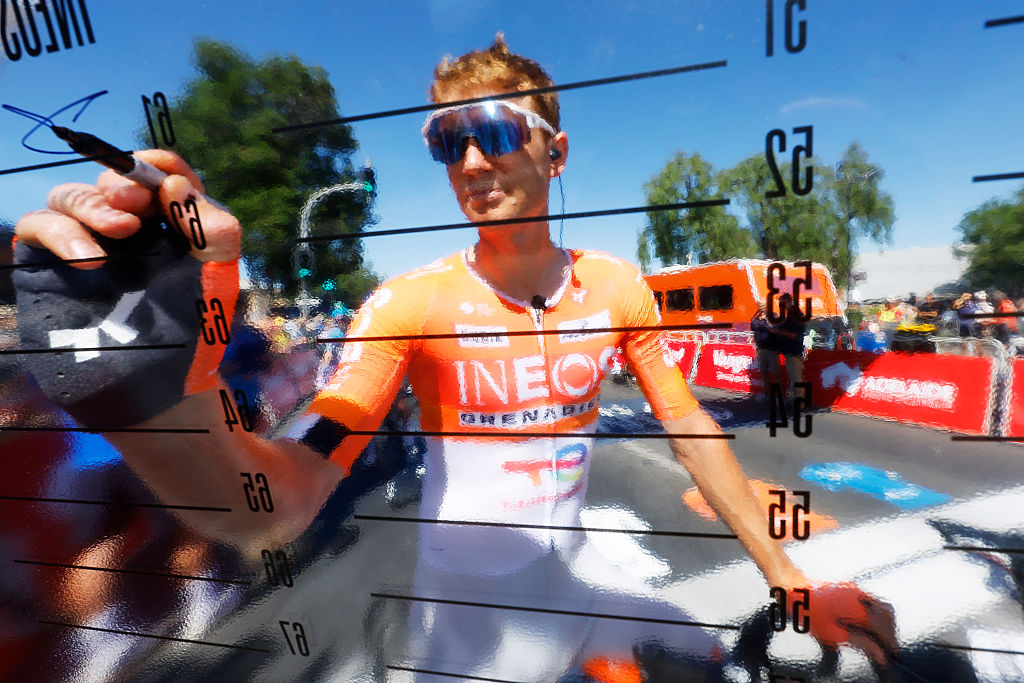Chaves focused on strong Vuelta a Espana finish
Colombian upbeat despite struggling in the final week
The latest race content, interviews, features, reviews and expert buying guides, direct to your inbox!
You are now subscribed
Your newsletter sign-up was successful
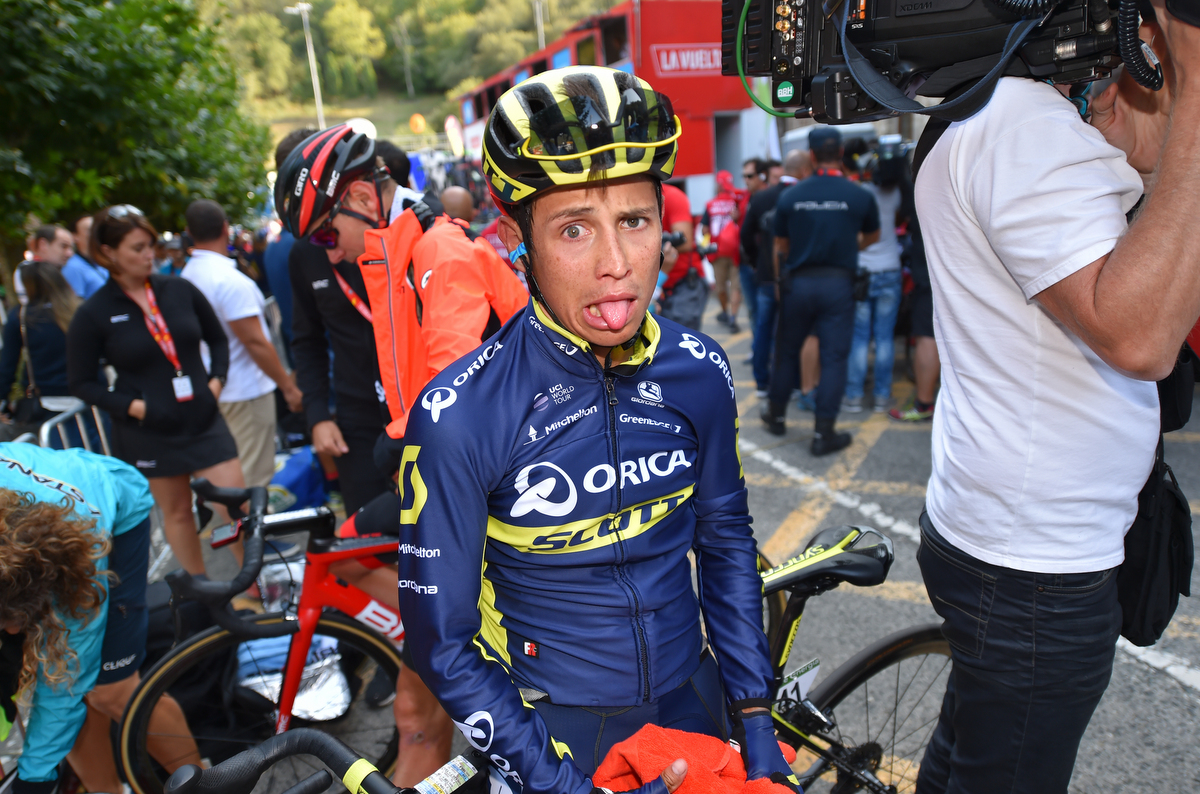
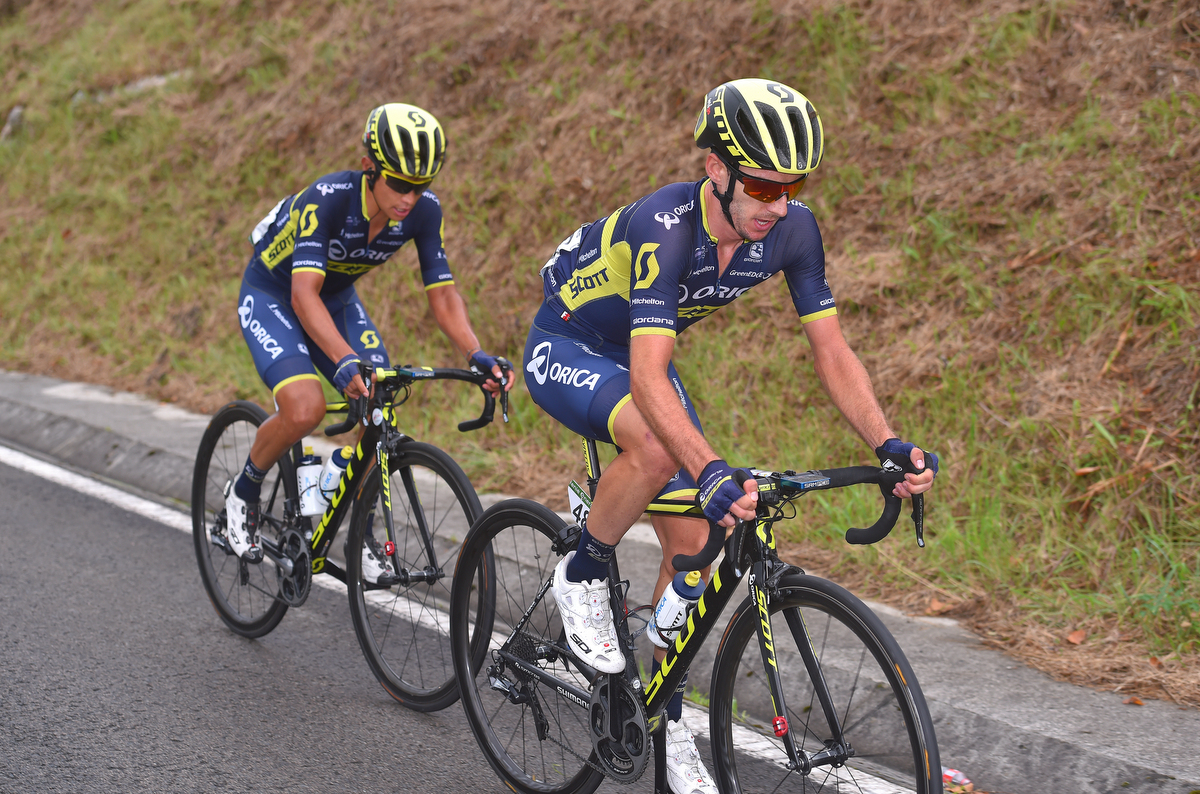
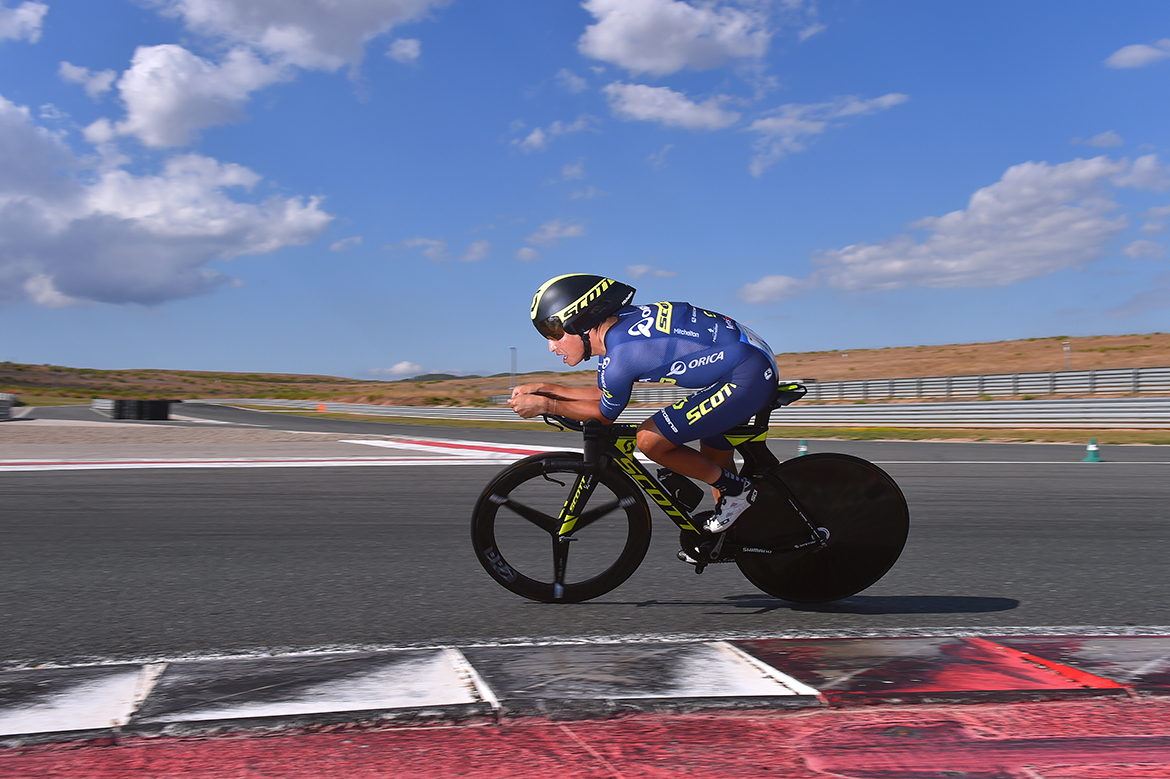
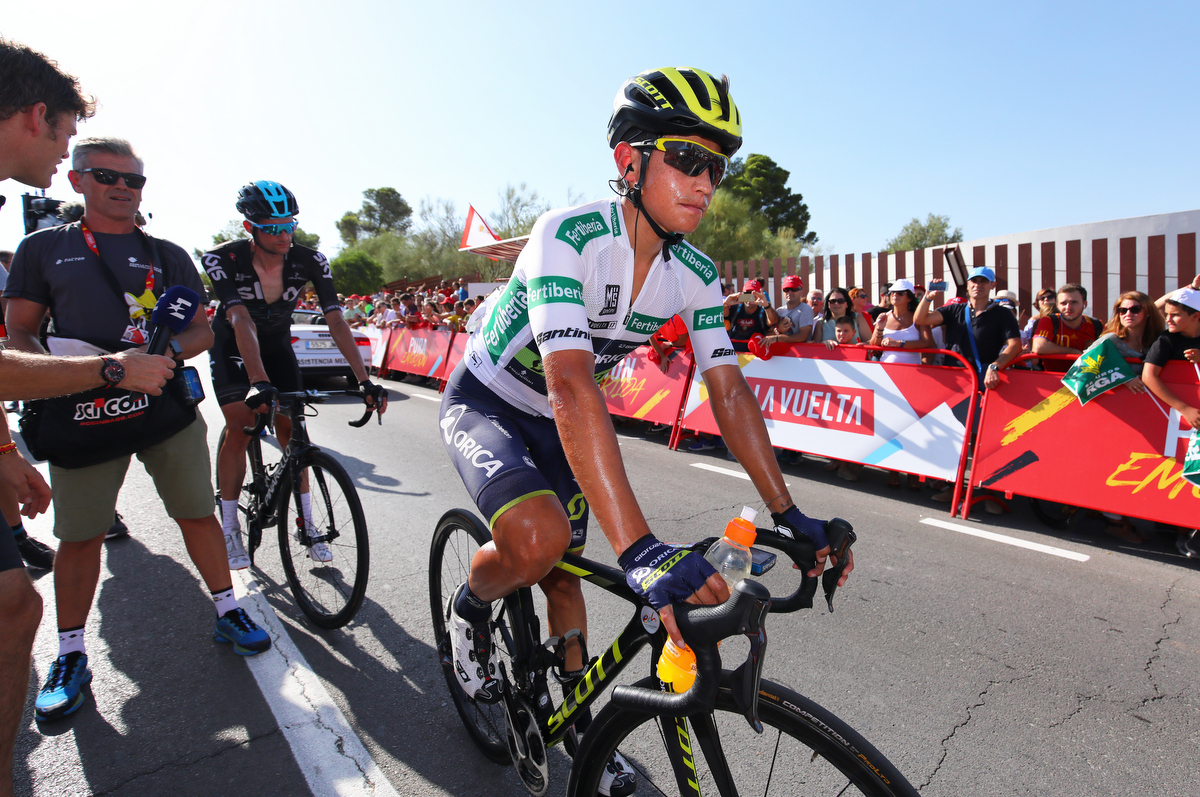
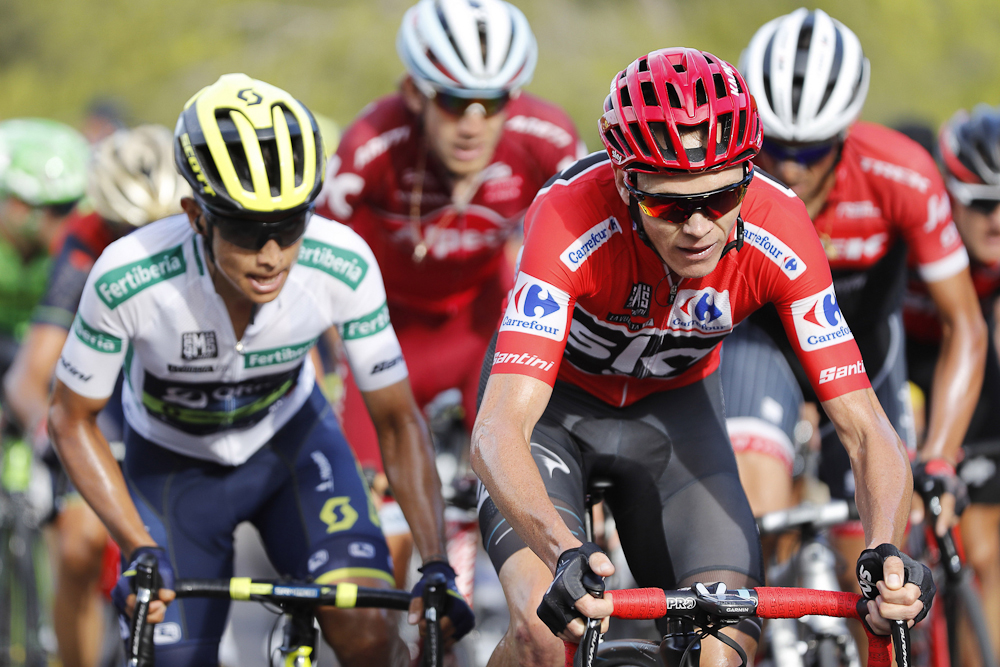
Three weeks into the Vuelta a Espana and Esteban Chaves (Orica-Scott) is still smiling. The Colombian is determined to fight for the best possible result in this year's Vuelta a Espana, despite slipping down the general classification in recent days. Ahead of the final mountain stage, Chaves sits just outside the top 10 in 12th position, almost 12 minutes behind the race leader Chris Froome (Team Sky).
The 2017 Vuelta a Espana has been a tale of two halves for Chaves. In the opening week, he was the only rider to be able to go toe to toe with Froome when the red jersey went on the attack. That hasn't happened over the past two weeks, and in the last week, Chaves has dropped from fifth and given away almost 10 minutes to his rivals.
The time trial in Logrono played a big part in that time loss but it was Los Machucos that sounded a death knell for his position in the top 10 overall.
Chaves says that he’s exhausted, but that is to be expected for everyone, and that this has been a steep learning curve with the Tour de France and the Vuelta a Espana on his programme for the first time.
"I think for every single rider, before the start of stage 19, the legs are f**ked. It's normal, no? For every single one you ask, everyone will say the same, they are tired. This is normal," he told Cyclingnews with his now-trademark laugh.
"It is different this year for me ,it is the first time that I have done the Tour de France and the Vuelta a Espana in the same season so everything is new for me. We tried to do the best we could in the general classification and this is still the objective. We keep that in mind. We will see, there is another super hard day and we will have to go super deep for sure and we will see what happens."
A two Grand Tour learning process
Riding two Grand Tours in a season has been a learning process for Chaves, in fact, this whole season has been a lesson in determination for the Colombian.
The latest race content, interviews, features, reviews and expert buying guides, direct to your inbox!
After a solid start at the Tour Down Under, he was sidelined for three months with knee problems. He was only able to get back to racing at the Criterium du Dauphine before he took on the Tour de France. It has been very difficult at times, but Chaves has maintained a relatively positive outlook throughout and sees this as an opportunity to gain more experience.
"If you look at the season and you see the whole picture it isn't great, but it is what it is. Sometimes it is like this. The important thing is that you keep trying and try to enjoy it. We look ahead, like always. For sure, it will help us to learn," he said.
"Cycling is always like this. Sometimes you have a bad year. You need to always look to the future because this sport isn't about one day or one year, it's not about one race; it's 10 years and this is the process.
"Five weeks ago, I was fighting at the Tour de France and four or five months ago, I was on a table and they were looking at my knee. I'm happy always. I'm living the dream, and I'm racing with a great team, I raced my first Tour de France, I'm in the Vuelta a Espana, I've got good friends, I have my family here."
Chaves faces one more battle before he can reach Madrid and truly assess his Vuelta a Espana performance. The Alto de l'Angliru lies before the peloton on Saturday, with several tough ascents and a tricky descent to deal with before they can take on the Asturian monster. Poor weather is expected too, which will only make their task that bit trickier.
"I think that it is one of the hardest climbs in the world. I have never done it before and if it's raining then it will be harder," explained Chaves.
"I think it will be more aggressive because the climb is harder and also the climb before and the descent is super difficult and it's the last day so everybody will go all or nothing. Froome, Nibali, and Contador, it's his last race. It will be super aggressive because it is a short stage as well. It is the last chance for everybody."
Born in Ireland to a cycling family and later moved to the Isle of Man, so there was no surprise when I got into the sport. Studied sports journalism at university before going on to do a Masters in sports broadcast. After university I spent three months interning at Eurosport, where I covered the Tour de France. In 2012 I started at Procycling Magazine, before becoming the deputy editor of Procycling Week. I then joined Cyclingnews, in December 2013.
